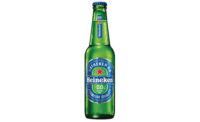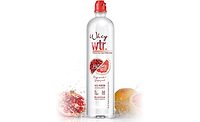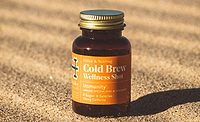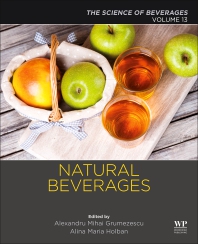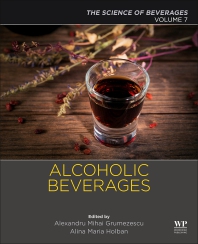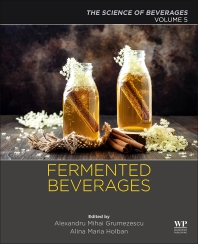R&D Feature
Consumers demand higher performance from beverages
Performance beverages must deliver more taste, functionality

To support a healthy lifestyle, consumers are making fitness a priority in their day-to-day lives. As a result, consumers are prioritizing better-for-you food and drink options with energizing, hydrating and reparative attributes, resulting in a boon for the sports and performance drink market. According to Chicago-based Mintel’s March report titled “Sports and Performance Drinks,” sales for the performance beverage category totaled $9.5 billion in 2018 and are expected to exceed $11.2 billion by 2024.
“Accounting for 18 percent of the market, performance drinks have struggled to gain a foothold in the market as these types of beverages appeal to a niche group of consumers — avid athletes — who prioritize their fitness goals and gains above holistic wellness,” the report states.
However, the functional beverage category has slowly brought performance drinks into the mainstream. Within the past three months, Mintel reports that 40 percent of its survey respondents had consumed a sports drink, 22 percent had consumed a no-sugar sports drink, 14 percent had consumed a natural sports drink, and 8 percent had consumed a pre-workout drink mix.
Mintel’s survey also showed the importance that flavor plays in drink choice as 62 percent of respondents indicated it as most important. Sugar content was a distant second, with 39 percent of respondents noting its importance.
‘Sweet’ without sacrifice
With sugar content a concern for some consumers, alternative sweeteners could alleviate some of those concerns. However, the replacement of full-sugar sports with reduced-sugar is not so simple.
In an August article on reduced-sugar sports drinks, Chicago-based Euromonitor International Senior Research Analyst Aga Jazarbek reported that there was a 6.4 percent compound annual growth rate (CAGR) value decline in reduced-sugar sports drinks between 2012 and 2017. Yet, with fitness trends on the rise, the segment generated retail value sales of $1.3 billion in 2019.
Although sugar might have a bad rap with some health-conscious consumers, Marcia Petit, technical category manager at Hoffman Estates, Ill-based Tate & Lyle, says sugar actually provides functions in beverage formulation beyond taste, such as body and mouthfeel. As such, beverage-makers are challenged with keeping sugar somewhat low without compromising a beverage’s taste and mouthfeel.
“Like any category where sugar reduction is driving consumer purchase decisions, matching the sweetness profile and mouthfeel of sugar is a hurdle,” Petit says. “Specific to this category, the addition of functional ingredients like plant proteins and vitamins can contribute off-notes to the profile that sugar can help hide.”
She notes that sweetening ingredients gaining popularity within these types of beverages are sucralose and stevia, but also that allulose provides a temporal profile similar to sucrose and synergizes with other sweeteners.
“Innovative ingredients like allulose, monk fruit extract, stevia extract and soluble fiber are popular tools our food scientists reach for when working with customers on performance beverage innovation,” she says. “While not a sweetener, soluble fiber is a dynamic ingredient for performance beverages as it provides not only mouthfeel and bulk in sugar-reduced formulations, but also supports digestive health, low glycemic response, and increased calcium absorption.”
.
Andrew Ohmes, global director of high-intensity sweeteners at Cargill, explains that as proteins, vitamins and minerals, antioxidants and botanicals gain traction in performance beverages, taste will be affected, making sweeteners a go-to solution. He says applications of Cargill’s ViaTech stevia leaf extract and EverSweet stevia sweetener are provide significant improvements in sweetness quality for functional beverages
“Our Zerose erythritol is also often added to the formula,” Ohmes says. “It’s a calorie-free sweetener that pairs well with stevia, rounding out the sweetness profile. Plus, its flavor-masking properties can help minimize off-notes that may accompany some of the functional ingredients found in many performance beverages.”
Boosts with benefits
When developing formulating the next generation of performance beverages, though, it’s not about what’s not in the finished product but what is in it. Protein remains a huge draw in sports beverages because of its contributions to muscle building, weight management, satiety and recovery speed, says Melissa Machen, senior technical service representative for Minneapolis-based Cargill. She notes that although soy and whey proteins remain popular, plant-based proteins are gaining ground.
“Pea protein is particularly well suited for beverage applications, with a better flavor profile and greater solubility than most other plant proteins,” she says.
Cargill offers PURIS Pea 870 and PURIS Pea 870H pea proteins for beverage applications, which Machen says is sourced from non-GMO yellow pea seed varieties that minimize traditional off-flavors.
Tenaj Ferguson, brand manager at Isopure, a brand of Downers Grove, Ill.-based Glanbia, says performance beverage also are incorporating vanguard ingredients like nootropics and adaptogens such as CBD, copaiba and ashwagandha. Meanwhile, yerba mate and matcha are providing energy attributes while superfoods such as elderberry, echinacea, and turmeric also are finding a home within performance beverages.
“Consumers demand effective, functional ingredients, with many increasingly preferring natural claims like natural, no artificial colors, flavors or sweeteners and plant-based, while having high interest in exciting flavors from rose to exotic fruits and interesting blends,” she says. “We see continued interest in products with propositions surrounding improved focus, hydration, anti-stress, gut health, anti-aging, joint support, recovery, antioxidants, superfoods, energy, mood and immunity benefits.”
To be successful in this space, Ferguson says that brands should be careful not to over-dial formulations by remaining focused on a clear proposition with the consumer need, competitive advantage and meaningful positioning.
Performance outlook
Although consumers reduced their performance beverage purchasing between April and June of this year, according to Nielsen data for the 52-weeks ending Aug. 8, the segment still is growing and currently has an 11 percent increase over prior year, Tate & Lyle’s Nichols says.
“This growth is well supported by consumer interest in maintaining healthy weight, being physically fit and leading a balanced lifestyle,” Nichols says. “We anticipate consumer interest in health will continue to grow in the wake of the pandemic, and performance beverages that offer both refreshment as well as energy and functional benefits, are well-positioned to meet those needs.”
Pam Stauffer, global marketing programs manager for Cargill, notes that as beverage-makers are tasked with developing performance drinks that check many boxes, they should be well matched with the right ingredient supplier.
“Consumers want products with little or no sugar, label-friendly ingredients that are also infused with unique flavors and great taste, yet still expect these drinks to deliver specific performance and health benefits,” she says. “We work with customers to understand their application, product development goals and flavor SKUs, and based on our knowledge, we help them create great-tasting products that stand out in the beverage case.”
To “stay ahead of the pack” in the face of performance beverage competitors, Mintel advises that brands step away from a one size-fits-all approach and focus on careful branding; leveraging unique flavors, new formulas, and functional ingredients; and meeting the niche needs of specific consumers.
Looking for a reprint of this article?
From high-res PDFs to custom plaques, order your copy today!




